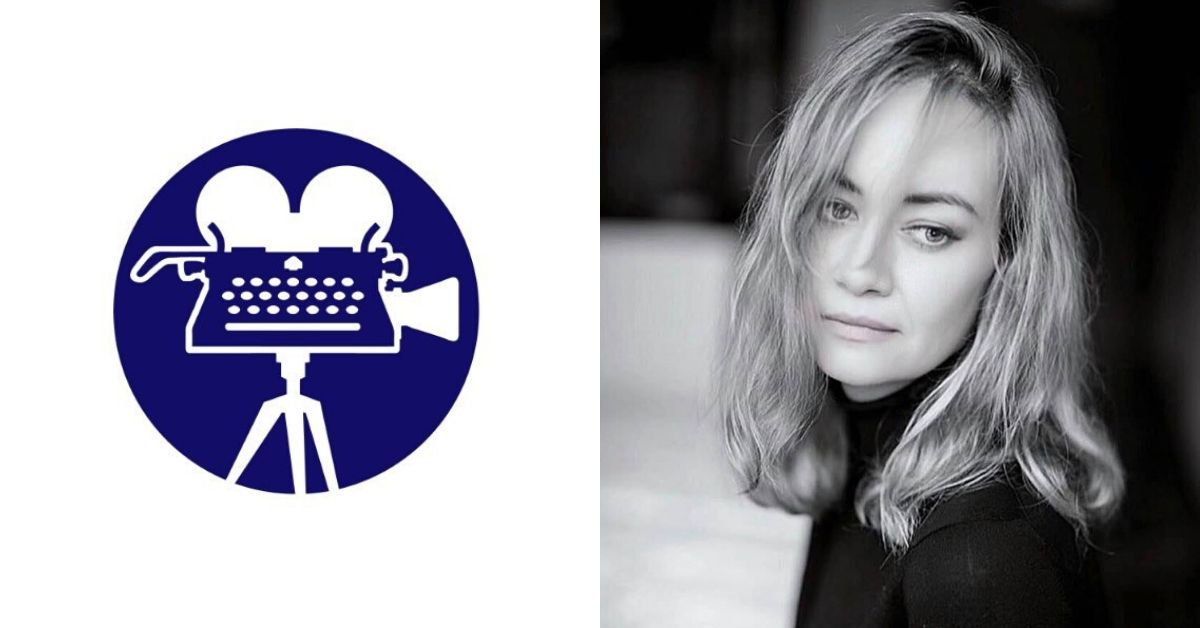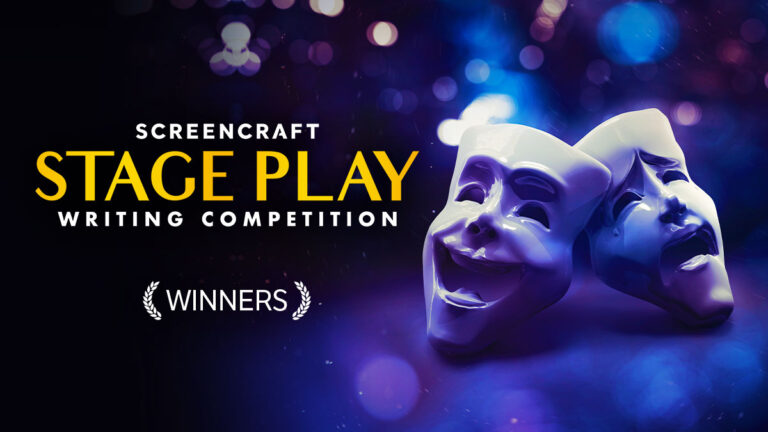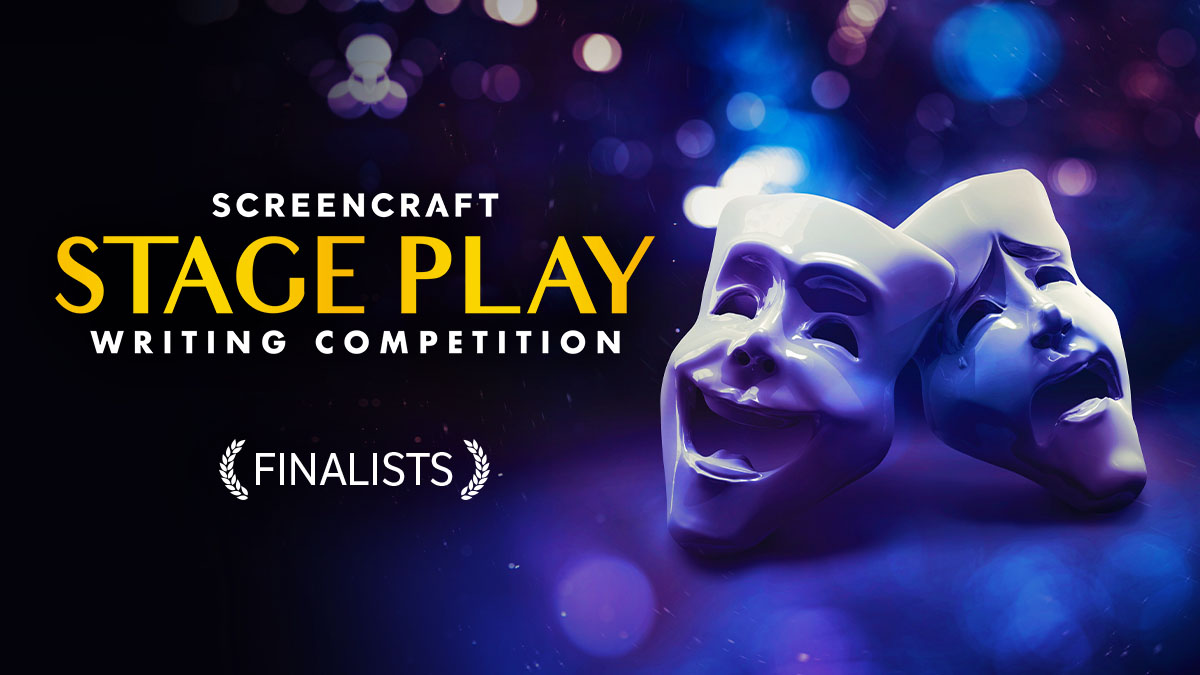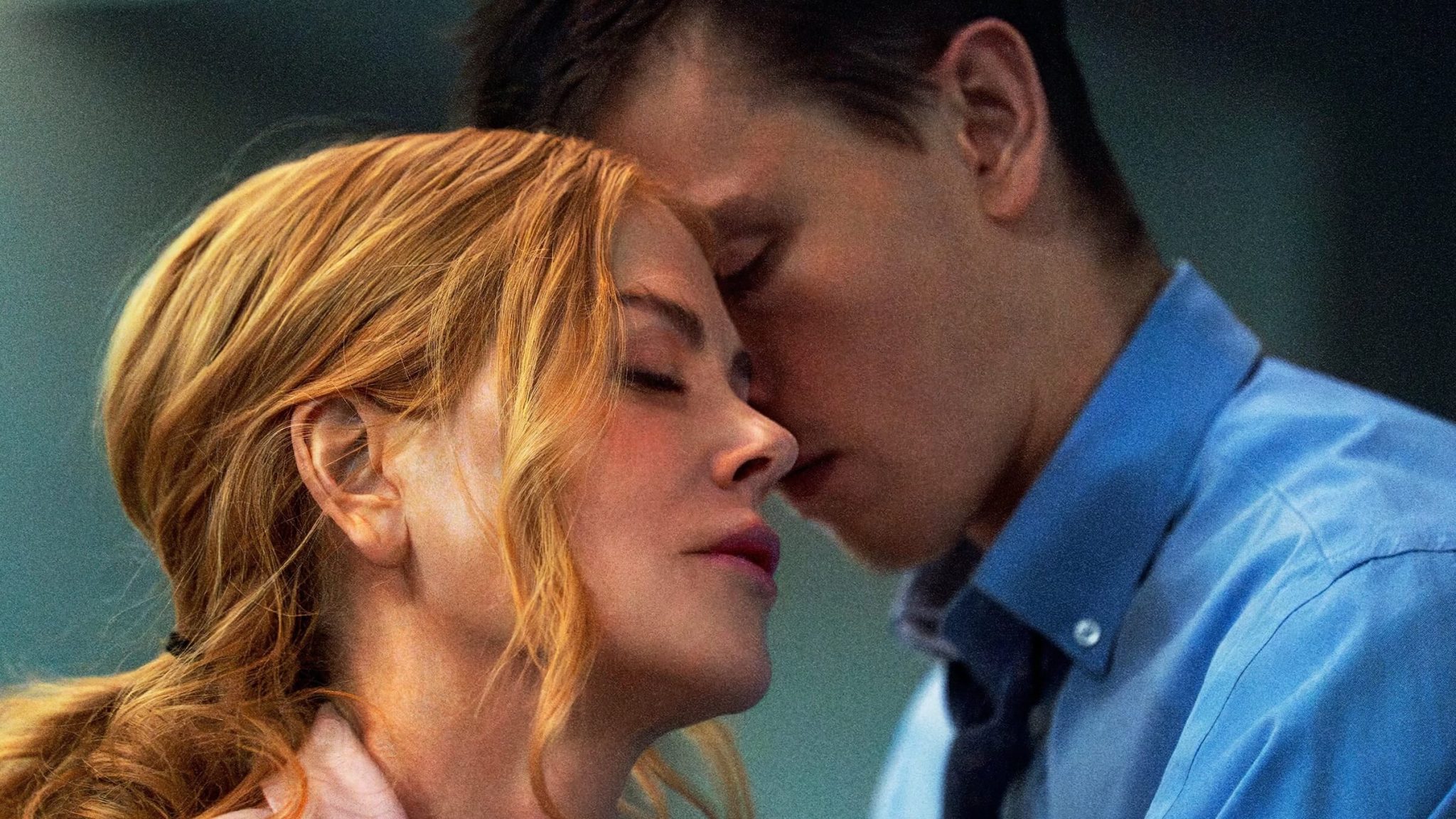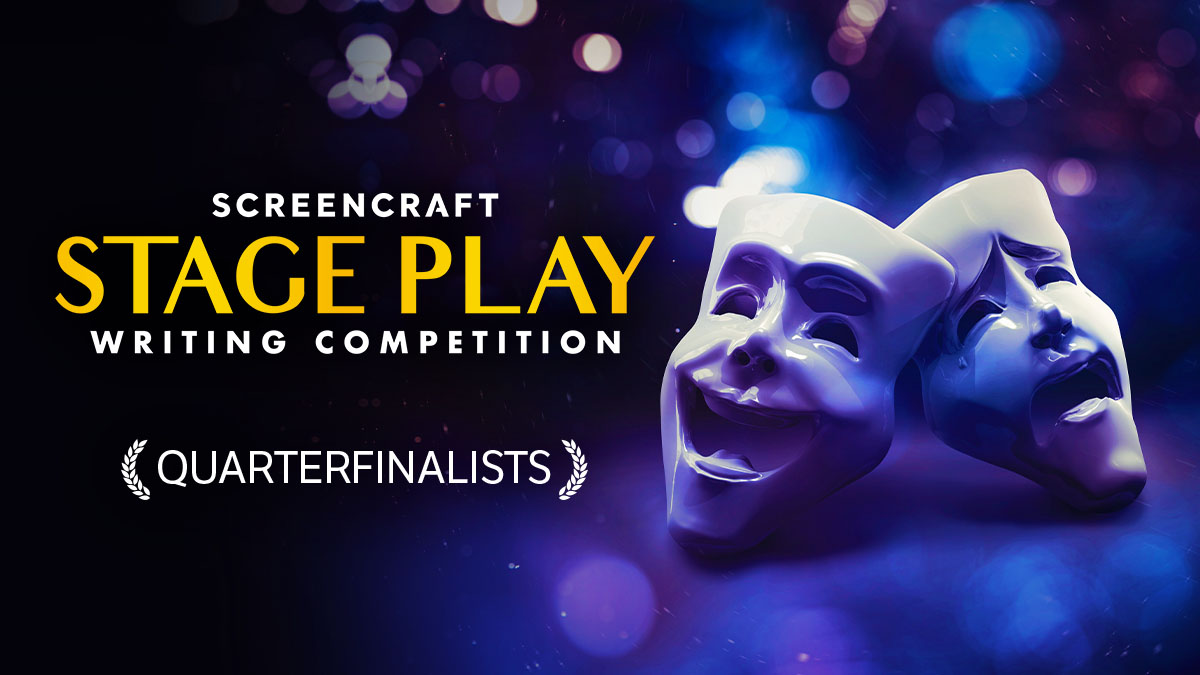Interview with Writer Joanna Pickering
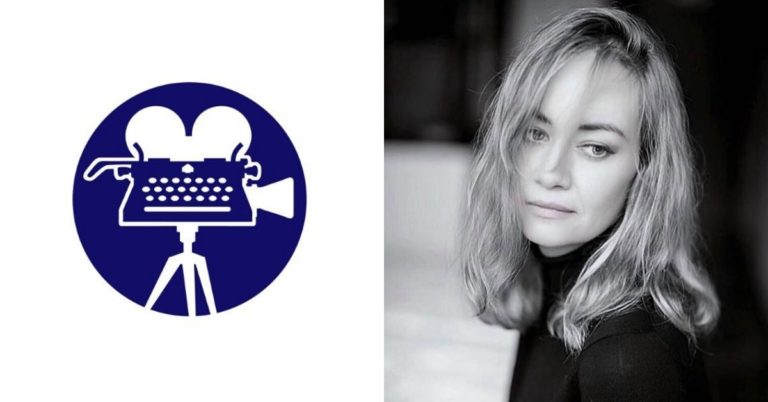
Joanna Pickering placed in the ScreenCraft Cinematic Stage Play Competition, and signed with 3 Arts Entertainment. She was recently awarded a scholarship to adapt her play to screen with support from HBO's Vice President for talent development, as her mentor for the project.
ScreenCraft: Where are you originally from and where are you currently based?
I am from the North East England. I first studied a degree in mathematics in the Scottish Highlands before moving into the creative arts and making my way to New York City.
ScreenCraft: What is the most recent or exciting accomplishment in your writing career?
I am awarded a full scholarship to work on my stage play “Beach Break” as a screen adaptation with Kelly Edwards, Vice President of HBO's talent development and programming. I sent my work to Rocaberti Writers, and I was selected by CEO, Claire Elizabeth Terry, who has been nurturing the career of new Hollywood writers since 2016.
ScreenCraft: How long have you been writing and how did you get into writing/decide to pursue it as a career?
I have been writing all my life, the last few years professionally. It started with the classic note book in cafes, and endless dialogue in my head. Writing has been my processing tool. I have written my way out of everything including myself. Academic life was great for disciplines and deadlines, but as an artist, I needed to rinse it out. I trained as an actress. I travelled the world. I was taking photographs and heavily into visuals, essential for story telling for film. Different cultures heightened my senses and inspiration. I wrote short stories and memoirs—all great inroads to screenplay ideas—and I got feedback saying, "Okay, you can really write." I published socio-political essays on gender issues and my creative writing. I wrote for stage with Primitive Grace Theater Ensemble for two years. I was awarded scholarships and fellowships. I have no formal writing education, but I found in really living, if you don’t compromise the essence of truth, the choices you make in life situations and all the characters you meet, hold up to the needs of dramatic conflict. I was first offered a novel deal, but I was creating all these different universes—ideas for period dramas, or pockets of life I had experienced. These became the TV series bibles that I pitched to 3 Arts. My manager encouraged me to write for screen as well as stage. My first screenplay “Nanking Road” is set in 1930s Shanghai. I created a TV series called "The Subordinates." I’m new as a screenwriter, but when I create writing it gets some form of recognition immediately. Compared to the disappointment endured by actors, I only have rewarding experiences as a writer. That makes it a worthy pursuit career wise.
ScreenCraft: Before you began submitting work to competitions, what were your goals as a writer and what obstacles were standing in your way?
The goal of every writer is to create something into existence, to get financed, and produced. And so, the seemingly impossible task of attracting agents and managers. It's too big a step to think of at once. You need to break it down and stay close to the writing. Focus on its development and needs as a piece. The rest will come. It’s also difficult to get people to read anything as a new writer. Writing for stage helped me because you’re thrown into the action with your actors. You get the work up on its feet and people hear it. You can establish yourself quicker. It also helped me develop a stronger ear for rewriting. Often, it’s not until I hear the actors read, do I get hold of my scene's structure. I often remove repetition I didn’t hear writing. I cannot recommend enough getting your work read in a weekly workshop. I recently got to workshop with playwright Michele Lowe at the Dramatist Institute on The Art of Rewriting—fantastic experience for a debut writer.
ScreenCraft: How did submitting to and placing in writing competitions help your career?
Writing competitions are a great way to make deadlines for yourself. Having a submission deadline helps you focus to finish or move onto the next draft. You also get helpful feedback on the work before sending it to agents and managers. I was delighted to be selected for the ScreenCraft Development Program. Placing as a finalist or festival selection stamps the work with approval. It makes the industry want to read it. My short play was a finalist at Catalyst Content festival and quarter-finalist for ScreenCraft. It was then a recipient of The Rohm Literary Agency scholarship where I worked with the luminous Wendy Goldman, and Margaret Atwood’s agent, Phoebe Lamore. NY Web Fest award nominated my debut screenplay twice. Small steps, but one leads to another, and that encouraged me to keep writing. I wrote my full play. It is now workshopping at The Actors Gym with Academy writer, director, producer Bobby Moresco and director Amanda Moresco, among some incredibly gifted writers.
ScreenCraft: What was the biggest turning point in your career?
Going from a mathematician to the dramatic arts and ending under the umbrella of 3 Arts. I create lots of turning points for myself. I am a multi-talented artist and I don’t like to pin my skills into one fixed career branch. I am not afraid to rip it up, and start again, or re-invent myself, or jump on unexpected opportunities. I am intuitive to my passions, but I have strong business acumen. That combination is part of being a successful artist. If you aren’t prepared to kick the doors down and do the business, why should anyone else? In an industry that has many closing doors, it is good to be flexible--even rejection is a turning point. It is exciting. My life is filled with turning points.
ScreenCraft: What is the best advice you have ever gotten or something you wish you learned sooner?
"You only need yourself to survive" adapted as "You only need yourself to write." Having already come through a gender battle in STEM where a math degree has the highest failure rate of any subject--by the end it was myself and ten boys--to then land in the entertainment industry has been tough. I wish I had known how many times I would use my time on male driven projects at the expense of my own. I might have spoken up sooner to say, “Sorry, my work is more important.” Male driven projects or narratives have this way to ingrain on our psyche as more viable. However, it’s all part of my journey. I write good power dynamics. It’s what I am becoming regarded for. I write what I never got to read in others work.
ScreenCraft: What is next for you and your career?
My play is in development but now via zoom. It’s a hard medium. I am gearing up to start my collaborations with 3 Arts. I’ve got a new job teaching playwriting with Roadmap Writers. I am also mentoring at Nostos Screenwriting retreats starting September. I always want to learn too. I dig Socrates on that front. I am headed to LA at the end of the year as a Robert Mckee screenwriting fellow. I am on an intensive directing course granted to me by TV director Rachel Feldman (Blue Bloods). Rachel is a true force. Meryl Streep is backing her latest movie on Lily Ledbetter's equal pay. She’s also one of your past ScreenCraft TV pilot finalists—see, we all love ScreenCraft! I’m not suggesting I’ll go straight into directing after lockdown, although you never know, but she helped me write my script as a director. I think all screenwriters should experience classes in directing and acting.
ScreenCraft: How have you found focus in these times?
I am not listening to the pressure we must create more in lockdown. We are flooded with intense drama and emotions. We are undergoing a cataclysmic change. Writers need to absorb their environment and process life. You have to survive first. Be easy on yourself. I am still writing every day, but without expectations. I had a short story published last week. I’ve been taking time writing letters to friends and family. I wrote a short screenplay about lockdown which was awarded the Coverfly Fee Waiver Program for 2020—thank you so much. When you take the pressure away and do little bits of writing, the big work happens next.
ScreenCraft: Any last bits of advice for aspiring writers out there?
Stop reading this, make yourself a pot of coffee, move your desk to a window, and start writing. You only need to write one line…then the next……[laughs].
Thank you for this interview!
---
You can find Joanna Pickering online at: www.joannapickering.com, and on Instagram and Twitter: @joannapickering
Tags
Get Our Screenwriting Newsletter!
Get weekly writing inspiration delivered to your inbox - including industry news, popular articles, and more!


